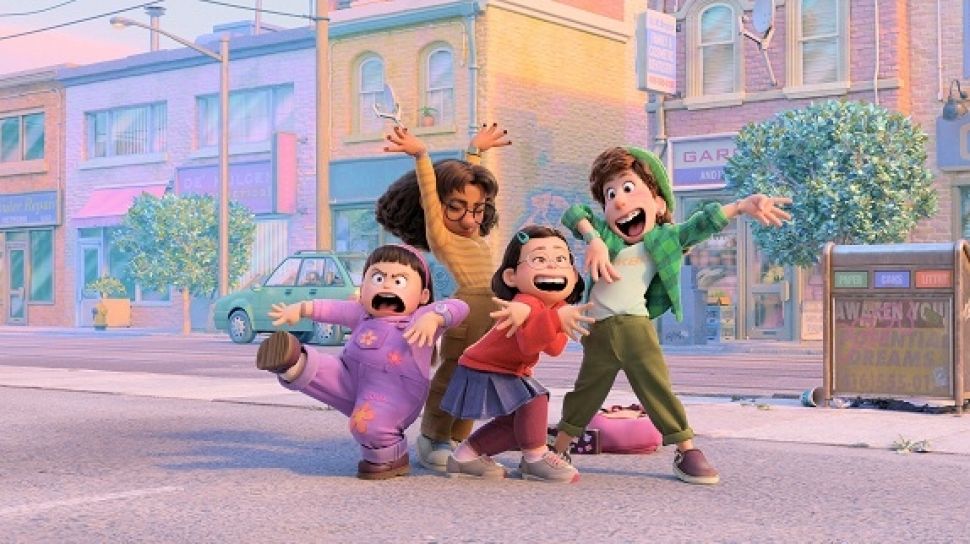The Indian film PK, directed by Rajkumar Hirani and released in 2014, stands as one of the most thought-provoking and commercially successful movies in contemporary Indian cinema. With its blend of humor, drama, and social commentary, the film explores profound questions about religion, belief, and human nature through the eyes of an alien visitor. This article offers a comprehensive overview of PK, examining its central themes, cast and crew, narrative elements, visual style, critical reception, cultural impact, musical components, social commentary, accolades, and overall legacy. As a film that sparked widespread discussion, PK continues to resonate with audiences worldwide and remains a significant cinematic work for its bold storytelling and insightful critique of societal norms.
Overview of the Film PK and Its Central Theme
PK is a satirical comedy-drama that follows an alien named PK who lands on Earth and finds himself bewildered by human customs and religious practices. The film uses PK’s innocence and curiosity to question societal norms, religious dogmas, and the way humans interpret faith. The central theme revolves around religious tolerance, skepticism, and the importance of questioning authority and traditions that are often blindly followed. It challenges viewers to reflect on the distinctions between faith and superstition, emphasizing the need for rational thinking and open-mindedness.
The narrative employs humor and satire to address sensitive topics, making complex issues accessible and engaging. At its core, PK advocates for secularism and criticizes the exploitation of religion for personal or political gains. The film also explores themes of love, friendship, and human connection, illustrating how genuine relationships transcend religious boundaries. Its central message encourages viewers to look beyond superficial rituals and seek a deeper understanding of spirituality and humanity.
The film’s title, PK, symbolizes the protagonist’s alien origin, serving as a metaphor for an outsider’s perspective on human society. Through PK’s eyes, the audience is invited to question societal norms and reflect on the true essence of faith and morality. The film’s central theme resonates universally, addressing the universal human quest for truth, acceptance, and understanding in a divided world.
Overall, PK is a film that combines entertainment with social critique, prompting viewers to examine their beliefs and prejudices. Its central theme underscores the importance of tolerance, empathy, and rational inquiry in fostering a more inclusive and harmonious society. The film’s compelling narrative and thought-provoking message have cemented its place as a significant work in contemporary cinema.
Cast and Crew Behind the Making of PK
The cast of PK features some of Bollywood’s most talented actors, with Aamir Khan leading as the titular character. Aamir’s portrayal of PK is both endearing and compelling, capturing the innocence and curiosity of an outsider. His performance was widely praised for its subtlety and depth, bringing a nuanced perspective to the film’s social commentary. Supporting him are Anushka Sharma as Jaggu, a journalist who helps PK in his quest for truth, and Sushant Singh Rajput in a pivotal role that adds emotional depth to the story.
The film was directed by Rajkumar Hirani, renowned for his ability to blend humor with social issues, as seen in his previous hits like Munna Bhai M.B.B.S. and 3 Idiots. Hirani’s direction is characterized by a deft balance of lightheartedness and seriousness, ensuring that the film’s message is conveyed effectively without becoming preachy. The screenplay, penned by Hirani and Abhijat Joshi, is sharp, witty, and layered with social insights. The film’s production design, costume, and cinematography all contribute to creating a believable world that contrasts the alien’s perspective with everyday human life.
The musical score was composed by Shantanu Moitra, with lyrics by Swanand Kirkire, adding emotional depth and humor through memorable songs. The film’s editing, led by Vidyut Ujjwal, ensures a tight narrative flow that maintains audience engagement throughout its runtime. The collaborative effort of the cast and crew resulted in a film that is both entertaining and thought-provoking, showcasing the talent and vision of those involved in its creation.
Importantly, PK also features cameo appearances by well-known personalities, including film stars and religious leaders, which added layers of social commentary and satire. The collective effort of the cast and crew, combined with the creative vision of Rajkumar Hirani, contributed significantly to the film’s success and enduring impact. Their dedication to delivering a meaningful yet entertaining story is evident in every frame of the movie.
Overall, the cast and crew behind PK brought together a blend of talent, social consciousness, and cinematic expertise that helped craft a film capable of engaging diverse audiences. Their collaborative effort resulted in a movie that is both a commercial blockbuster and a cultural phenomenon, highlighting the power of cinema to challenge societal norms and spark dialogue.
Plot Summary and Key Story Elements of PK
PK begins with an alien spacecraft landing in a remote Indian village, where PK (Aamir Khan) emerges with childlike innocence and curiosity. Stranded and confused by the complexities of human life, PK sets out to understand human customs, especially religion. His initial innocence leads him to question the rituals and beliefs that humans hold sacred, often through humorous and poignant interactions with villagers and urban dwellers alike.
The story unfolds as PK encounters a journalist named Jaggu (Anushka Sharma), who becomes intrigued by his unusual behavior and innocence. As PK searches for his lost device, which was stolen by a con artist, he learns about the various ways in which religion is exploited for personal gain. His quest leads him to question the authenticity of religious practices, leading to humorous yet critical situations that highlight societal hypocrisies. Over time, PK’s innocence and straightforward questions expose the contradictions and absurdities within human beliefs.
A pivotal moment in the film involves PK’s realization that he needs to find his lost device in order to return home. His journey takes him through different social settings, exposing him to religious leaders, scams, and societal prejudices. The film cleverly intertwines PK’s personal quest with broader social issues, including religious intolerance, superstition, and the commercialization of faith. The narrative emphasizes that understanding and compassion are more important than blind faith.
The climax of PK delivers a powerful message about love, acceptance, and the importance of questioning established norms. Through PK’s innocent perspective, the audience is encouraged to re-evaluate their own beliefs and prejudices. The film concludes with PK returning to his home planet, leaving viewers with lingering questions about the true meaning of faith and humanity. The key story elements—innocence, curiosity, social critique, and emotional depth—make PK a compelling and thought-provoking cinematic experience.
Overall, the plot of PK masterfully combines humor with social commentary, using the perspective of an outsider to reveal truths about human society. Its key story elements serve to challenge audiences to think critically about their own beliefs and the societal structures that shape their lives. The film’s narrative is both entertaining and educational, making it a memorable piece of cinema.
Visual Style and Cinematic Techniques in PK
PK employs a vibrant and colorful visual style that vividly captures both the rustic charm of Indian villages and the bustling energy of urban environments. The cinematography by C. K. Muraleedharan enhances the storytelling with dynamic camera work, often using wide shots to emphasize the scale of PK’s innocence against the backdrop of complex human society. The use of natural lighting and earthy tones adds authenticity to the rural scenes, while brighter, more saturated colors depict city life, creating a visual contrast that underscores the film’s thematic dichotomy.
The film makes effective use of visual humor and symbolism to reinforce its messages. For example, PK’s simple yet expressive facial expressions and body language serve as a visual language that communicates his wonder, confusion, and innocence. The director employs close-ups during emotional moments to draw viewers into PK’s perspective, fostering empathy and understanding. Additionally, the film incorporates creative visual metaphors, such as the recurring motif of the alien’s space suit and gadgets, which symbolize the outsider’s perspective and curiosity.
Cinematic techniques like seamless editing, inventive shot compositions, and strategic use of slow motion and flashbacks contribute to the film’s engaging narrative flow. The editing by Vidyut Ujjwal ensures a smooth transition between comedic and serious scenes, maintaining a balanced tone throughout. The use of visual effects, though subtle, enhances scenes where PK’s alien origin is subtly hinted at, adding a layer of intrigue without overwhelming the story.
The film also employs a mix of documentary-style sequences and traditional cinematic shots to give a sense of realism and immediacy. This approach helps ground PK’s fantastical journey in relatable social settings, making its social critique more impactful. The choreographed sequences, especially in the song and dance numbers, are lively and colorful, adding to the film’s energetic visual rhythm.
Overall, PK’s visual style and cinematic techniques work in tandem to create an immersive experience that combines humor, emotion, and social critique. The thoughtful use of imagery, camera work, and editing enhances the narrative’s depth, making the film not only engaging but also visually compelling. These techniques contribute significantly to the film’s enduring appeal and artistic recognition.
Reception and Critical Response to PK
PK received widespread acclaim from critics and audiences alike upon its release in 2014. Critics praised its bold social commentary, Aamir Khan’s compelling performance, and Rajkumar Hirani’s skillful direction. Many considered the film to be a thought-provoking satire that managed to entertain while addressing sensitive societal issues. Its screenplay was lauded for its wit, humor, and emotional depth, making it accessible to a broad audience.
The film’s commercial success was remarkable, grossing over $100 million worldwide, making it one of the highest-grossing Indian films at the time. The audience response was overwhelmingly positive, with viewers appreciating its courage to tackle taboo topics and challenge religious dogmas. The film sparked debates across social media, academic circles, and religious groups, reflecting its



